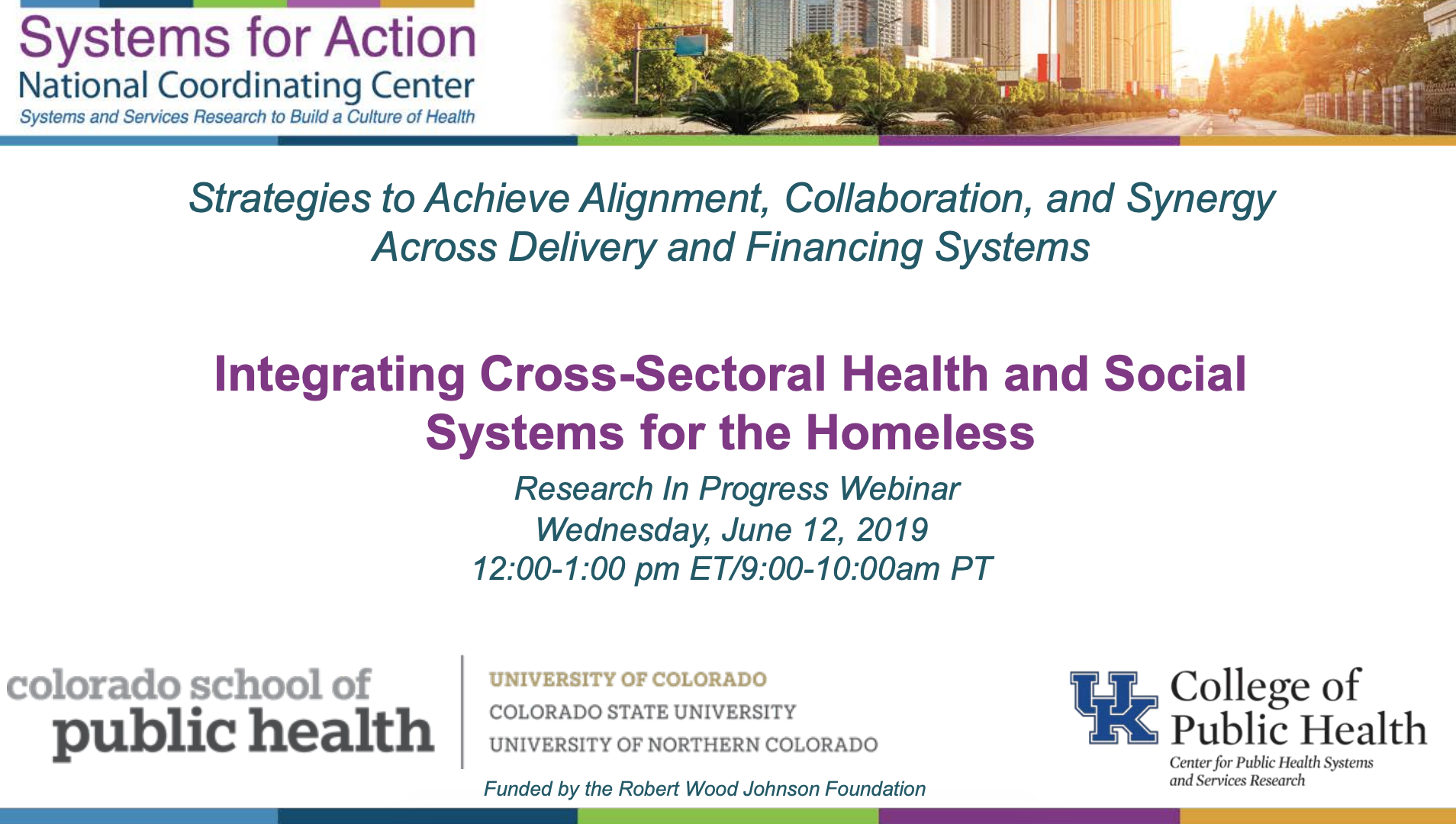
This webinar features a research project that generates evidence of the degree to which coordinated community services and resources are effective in improving health and equity, and will capture the key factors in successful cross-sector collaborations for the homeless.
Members of the homeless population bear greater risk than other populations for many preventable diseases but are less likely to access healthcare systems. These individuals need to be engaged by multiple systems to access services and support related not only to stable housing but also to reliable transportation, employment opportunities, and a healthy family environment.
This one-year developmental study will evaluate the US Department of Housing and Urban Development’s initiative, the Continuum of Care (CoC) system, which addresses homelessness through cross-sector collaboration. Specifically, investigators will use a mixed-methods approach to test whether CoCs that are under resource constraints in terms of funding availability, less than optimal diversity in their partner organizations, and poor quality partnerships, experience greater challenges in addressing the full spectrum of health needs of their homeless populations.
Study findings will identify effective models of CoC networks and thereby advance knowledge on building a culture of health in communities with highly vulnerable homeless populations.

 Back to Resources
Back to Resources